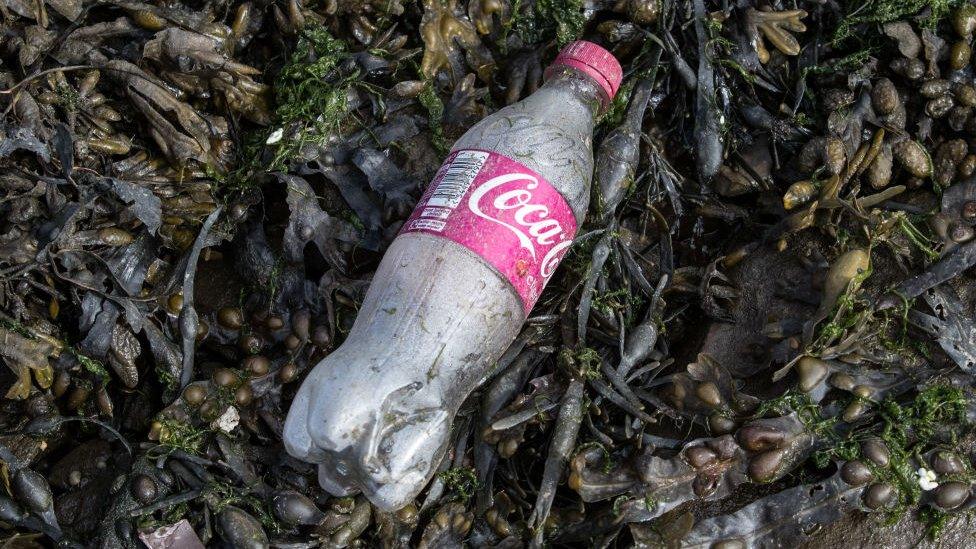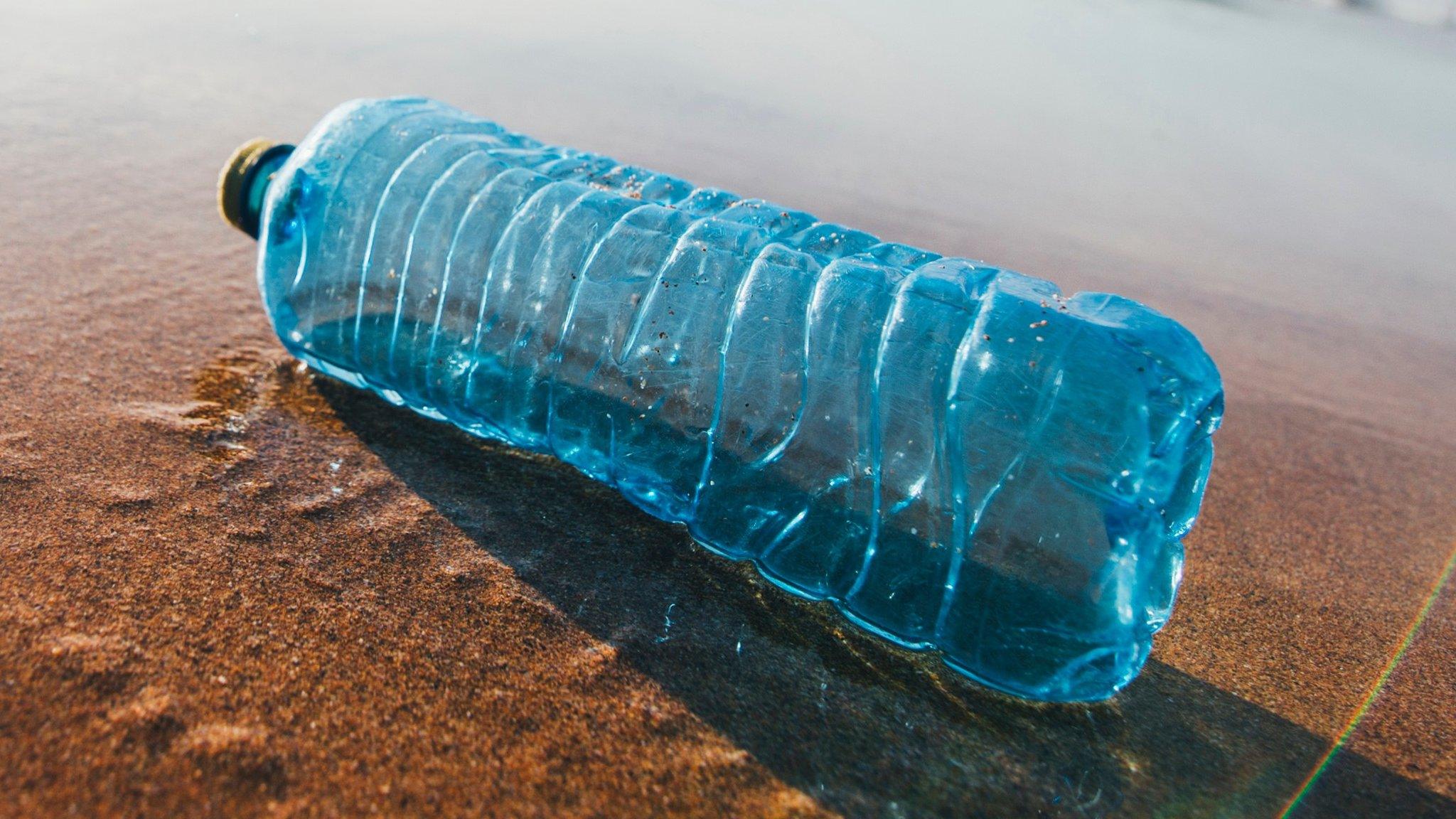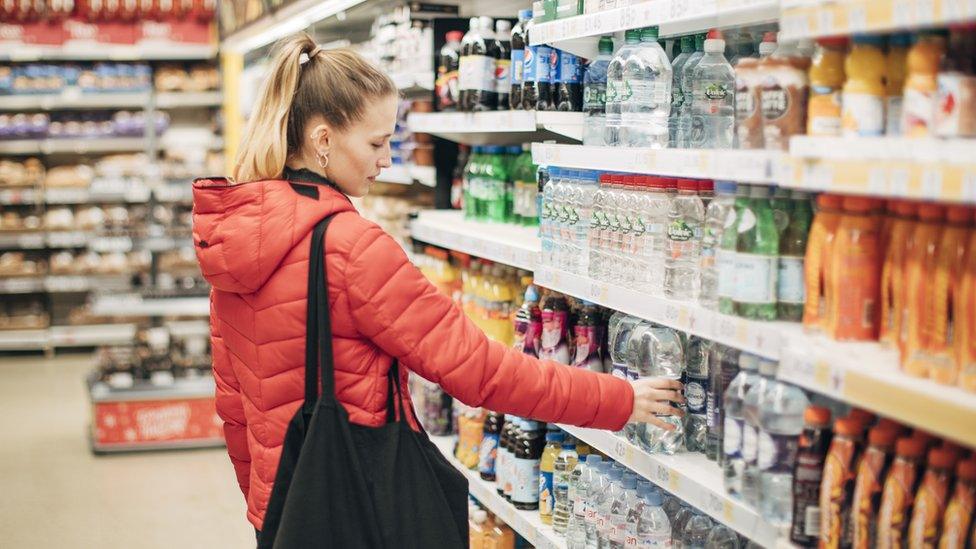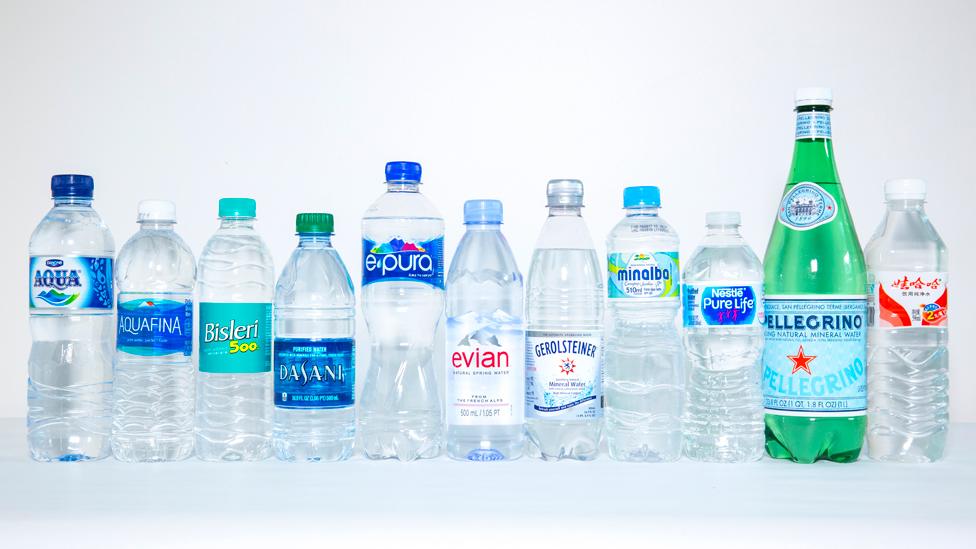Plastic waste elimination pledge by 2025 attracts more big firms
- Published
- comments

Some 250 big organisations have now pledged to eradicate plastic waste by 2025, including Coca Cola, H&M and L'Oreal, up from 40 in April.
All promised that 100% of their plastic packaging would be reused, recycled or composted within seven years.
The aim is to combat plastic waste pollution, which is harming the seas.
The Ellen MacArthur Foundation, which is behind the campaign, said if current trends continue, there could be more plastic than fish in the seas by 2050.
The foundation was launched in 2010 by the record-breaking yachtswoman to improve environmental standards, particularly on plastic use, after she was shocked by the level of plastic pollution she observed on her round the world sailings.
An estimated 8.3 billion tonnes of plastic had been produced since the early 1950s, with 60% of it ending up in landfills or the natural environment.
And while packaging, such as bottles, yoghurt pots and wrappers, is not the sole source of plastic pollution, it represents the biggest use of plastic.
The move was welcomed by environmental campaigners, Friends of the Earth.
Friends of the Earth plastics campaigner Julian Kirby said: "It's encouraging that more firms and governments are listening to public demands to curb plastic waste and are pledging to act. A global movement on this issue is urgently needed."
According to the Ellen MacArthur Foundation, signatories to the pledge - which include big firms like Burberry and Mars, as well as governments and NGOs - have made commitments to:
Eliminate "problematic or unnecessary" plastic packaging and move from single-use to reusable packaging by 2025
Ensure all plastic packaging can be "easily and safely" recycled or composted
Increase the amounts of plastics reused or recycled into new packaging or products.

Pyramid-shaped PG Tips teabags are now made from biodegradable material
One signatory, Marmite-maker Unilever, told the BBC it recycles about two thirds of the plastic it produces but has been cutting plastic waste for some time.
In February, stopped sealing its pyramid-shaped PG Tips teabags with polypropylene, using corn starch instead.
'Circular approach'
It is also looking at ways of reusing black Tresemme shampoo bottles and getting recycled plastic into Hellmann's mayonnaise bottles.
Currently Hellmann's bottles can be recycled but contain no recycled plastic.
"The aim is to move towards a circular approach, where you are only using recycled content and you work toward eliminating single-use packaging," Mr Blanchard told the BBC.
"We are seeing consumers wanting fully recyclable solutions. In the next few years people who use our products will be looking for packs that are recyclable or use recycled content, and we will be telling them on the packaging when that's the case."
Dame Ellen MacArthur, founder of the MacArthur Foundation, said the pledge offered a "clear vision for what we need to create a circular economy for plastic".
Signatories have agreed to publish annual data on their progress, with targets become "increasingly ambitious" over the coming years.
- Published17 March 2020

- Published28 March 2018

- Published15 March 2018
